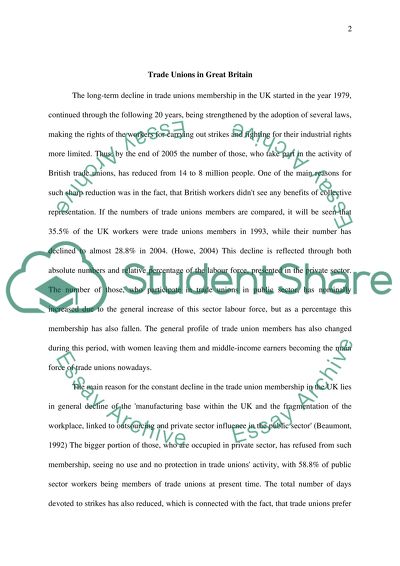Cite this document
(“Trade Unions in Great Britain Essay Example | Topics and Well Written Essays - 2000 words”, n.d.)
Trade Unions in Great Britain Essay Example | Topics and Well Written Essays - 2000 words. Retrieved from https://studentshare.org/miscellaneous/1501672-trade-unions-in-great-britain
Trade Unions in Great Britain Essay Example | Topics and Well Written Essays - 2000 words. Retrieved from https://studentshare.org/miscellaneous/1501672-trade-unions-in-great-britain
(Trade Unions in Great Britain Essay Example | Topics and Well Written Essays - 2000 Words)
Trade Unions in Great Britain Essay Example | Topics and Well Written Essays - 2000 Words. https://studentshare.org/miscellaneous/1501672-trade-unions-in-great-britain.
Trade Unions in Great Britain Essay Example | Topics and Well Written Essays - 2000 Words. https://studentshare.org/miscellaneous/1501672-trade-unions-in-great-britain.
“Trade Unions in Great Britain Essay Example | Topics and Well Written Essays - 2000 Words”, n.d. https://studentshare.org/miscellaneous/1501672-trade-unions-in-great-britain.


